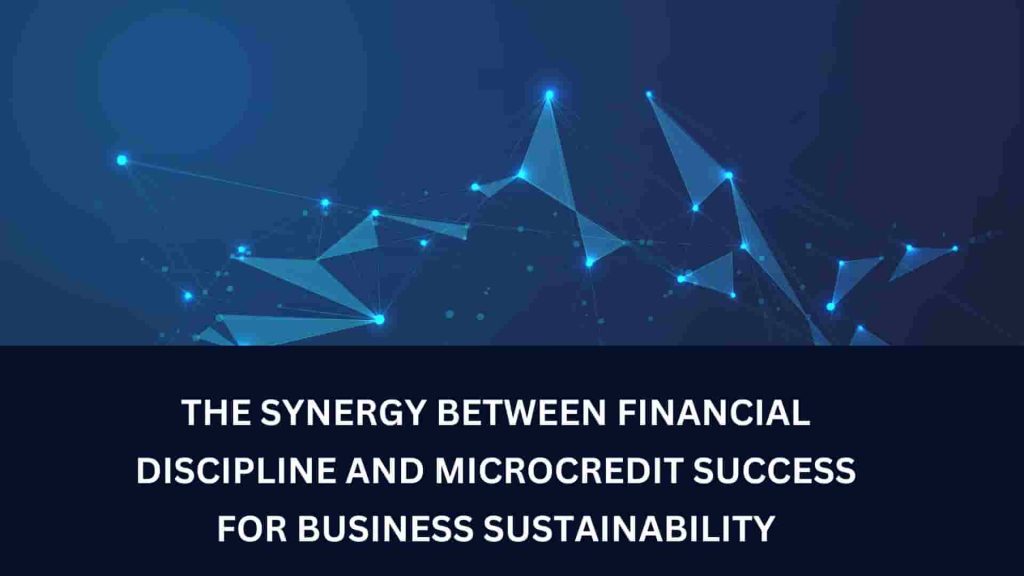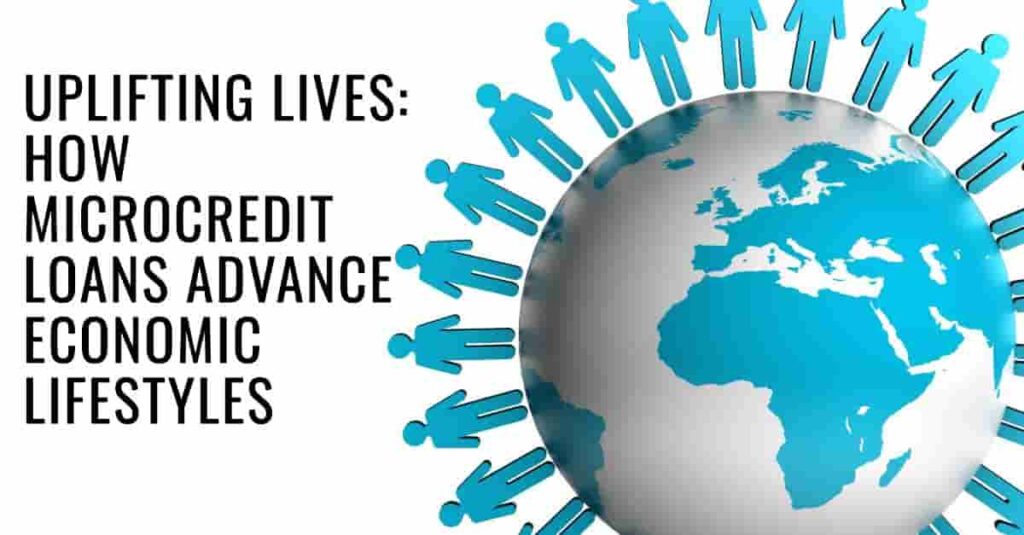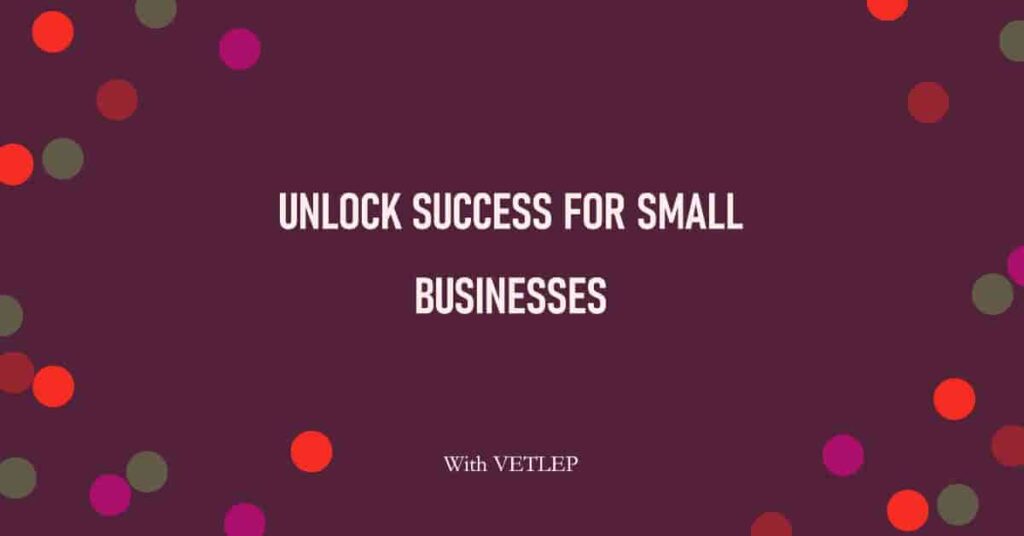The Synergy Between Financial Discipline and Microcredit Success for Business Sustainability

In today’s rapidly changing economic landscape, financial discipline has emerged as a crucial factor for both individuals and businesses seeking sustainability. When coupled with microcredit, this discipline becomes even more potent, enabling entrepreneurs to effectively utilize resources while fostering long-term growth. Microcredit, often seen as a lifeline for those lacking access to traditional financial services, provides the necessary capital for new ventures. However, without the guiding principles of financial discipline, the potential benefits of microcredit may not be fully realized. This essay examines the essential synergy between financial discipline and microcredit success and highlights the significant role of the Valdymas Entrepreneurial and Transformational Leadership Empowerment Program (VETLEP) in promoting this dynamic.
The Importance of Financial Discipline for Microcredit Success
Financial discipline encompasses a set of practices that include prudent budgeting, responsible spending, and strategic saving. It serves as the foundation upon which successful financial ventures are built. For entrepreneurs benefiting from microcredit, maintaining financial discipline is crucial to ensure that borrowed funds are utilized effectively. Teti (2023) states, “Financial discipline is about aligning spending with business goals and ensuring resources are used to generate maximum returns.” Entrepreneurs who embrace this principle are better positioned to repay their loans promptly and build their creditworthiness for future borrowing.
Budgeting and Cash Flow Management
Effective budgeting is a cornerstone of financial discipline. It empowers entrepreneurs to allocate funds strategically, ensuring that critical aspects such as inventory, operations, and marketing are sufficiently funded. Moreover, cash flow management is especially vital for microcredit borrowers because it ensures that they have enough liquidity to meet repayment schedules without disrupting business operations (Miller,2023). Entrepreneurs who fail to manage their cash flow often face difficulties in meeting their loan obligations, jeopardizing their credit standing and future borrowing opportunities.
Additionally, budgeting allows businesses to set aside funds for unforeseen expenses, an essential practice for navigating periods of low sales or economic downturns. Johnson (2023) emphasizes this necessity by stating, “Entrepreneurs who incorporate contingency planning into their budgets are better equipped to weather financial challenges, making them more sustainable in the long run.” Thus, effective budgeting not only supports immediate financial health but also lays the groundwork for future stability.
Microcredit as a Tool for Economic Empowerment
Microcredit has gained prominence as a powerful tool for promoting financial inclusion and economic empowerment. By offering small loans to individuals who lack access to traditional banking services, microcredit enables entrepreneurs to start or expand their businesses, creating employment opportunities and driving economic development. Yunus (2021) characterizes microcredit as “a revolutionary tool that empowers individuals, particularly those in marginalized communities, to lift themselves out of poverty through entrepreneurship.”
However, access to capital alone does not guarantee success. The combination of microcredit and financial discipline enables entrepreneurs to maximize the impact of their loans. Those who practice financial discipline utilize their microcredit funds wisely, focusing on investments that yield sustainable revenue while avoiding unnecessary debt accumulation (Porter, 2023). This responsible approach not only enhances the success of individual enterprises but also contributes to broader economic growth within communities.
The Role of VETLEP in Supporting Financial Discipline and Microcredit Success
The Valdymas Entrepreneurial and Transformational Leadership Empowerment Program (VETLEP) plays a pivotal role in ensuring that entrepreneurs gain not only access to microcredit but also the financial skills necessary for sustainable success. VETLEP’s holistic model combines flexible, affordable microcredit loans with mentorship, training, and leadership development. This comprehensive support structure fosters both financial discipline and business acumen, equipping entrepreneurs to manage their finances effectively and grow their businesses sustainably (VETLEP, 2024).
Flexible Microcredit Loans for Sustainable Growth
A distinguishing feature of VETLEP’s model is its provision of flexible microcredit loans. These loans are crafted to accommodate the unpredictable nature of small business income, offering reasonable repayment terms and low interest rates. This flexibility is crucial as it alleviates the financial pressure on entrepreneurs, allowing them to concentrate on expanding their businesses rather than struggling to meet rigid repayment deadlines (Yunus, 2021). VETLEP (2024) underscores this, stating, “Our microcredit loans are not just financial tools; they are catalysts for entrepreneurial success, empowering business owners to thrive in competitive markets.”
Mentorship and Financial Management Training
In addition to capital, VETLEP provides crucial mentorship and training in financial management, marketing, and leadership development. Research by Collins (2022) shows that programs integrating financial support with educational initiatives yield higher success rates among entrepreneurs. By equipping business owners with the knowledge and skills necessary for sound financial management, VETLEP ensures that they are prepared to make informed decisions that promote long-term sustainability. Furthermore, VETLEP’s leadership training programs help entrepreneurs cultivate their leadership styles, which enhances not only their businesses but also their communities by fostering a new generation of leaders.
Networking and Community Support
Moreover, VETLEP fosters a community of entrepreneurs who can share resources, offer advice, and form valuable partnerships. This network-based approach ensures that entrepreneurs do not operate in isolation but are part of a vibrant, supportive ecosystem. As Porter (2023) notes, “Access to business networks significantly increases the likelihood of entrepreneurial success, particularly for those in underserved areas.” By creating a collaborative environment, VETLEP enhances the overall effectiveness of its microcredit model
Conclusion
The synergy between financial discipline and microcredit is vital for achieving business sustainability. While microcredit provides the necessary resources for entrepreneurs to start and grow their businesses, financial discipline ensures that these resources are managed effectively. The Valdymas Entrepreneurial and Transformational Leadership Empowerment Program (VETLEP) exemplifies this synergy by offering flexible microcredit loans, comprehensive mentorship, and networking opportunities, ultimately empowering entrepreneurs to turn their dreams into reality. By fostering financial discipline, VETLEP not only helps individual entrepreneurs thrive but also contributes to broader economic growth and community development. In essence, the collaboration between financial discipline and microcredit is a potent combination for creating sustainable businesses and fostering economic empowerment in underserved communities
Bibliography
- Collins, M. (2022). The Role of Microcredit and Training in Entrepreneurial
- Success: A Study of Small Business Growth. Entrepreneurial Journal, 45(3),
- 78-95.
- Johnson, R. (2023). Cash Flow Management for Sustainable Business
- Practices. Journal of Financial Management, 28(2), 112-128.
- Miller, J. (2023). Capacity Building and Financial Empowerment in
- Underserved Communities. Financial Development Journal, 19(2), 102-112.
- Porter, H. (2023). The Importance of Business Networks for Small
- Entrepreneurs. Journal of Entrepreneurial Studies, 30(4), 45-56.
- Teti, A. (2023). Financial Discipline in Business: Strategies for Success.
- Business Insights Review, 10(1), 22-35.
- VETLEP. (2024). Valdymas Entrepreneurial and Transformational Leadership
- Empowerment Program Overview. VETLEP.org.
- Yunus, M. (2021). Microfinance and the Fight Against Poverty: A Vision for
- Global Economic Inclusion. Microfinance Today, 28(1), 12-20.



